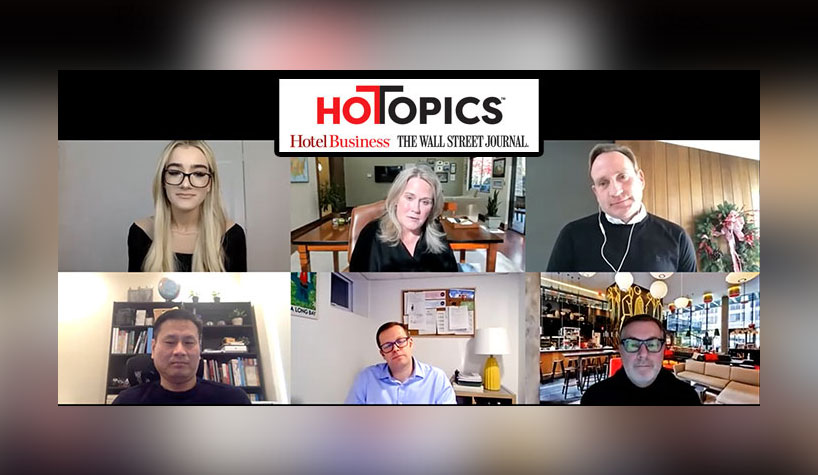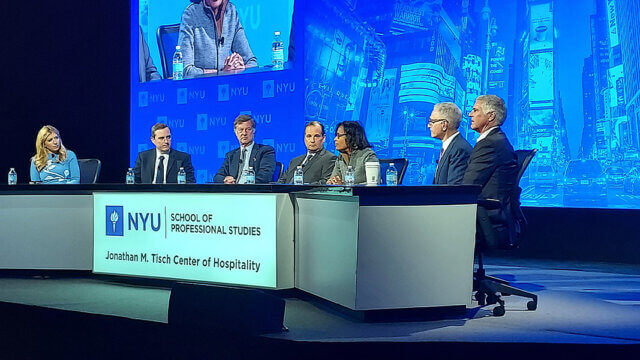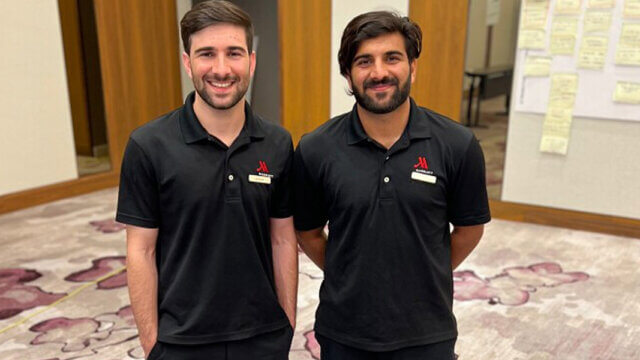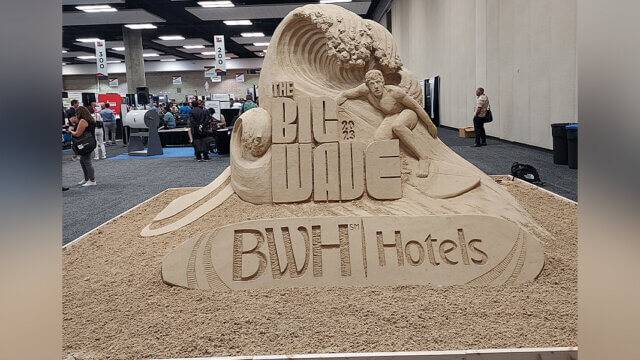INTERNATIONAL REPORT—In the latest edition of Hot Topics, “Personal Touch or Personal Space: Exploring a Contactless Future,” panelists from the hospitality, publishing and technology industries discussed the “new normal” as it relates to the guest experience, and if the changes are temporary or here for the long term.
Sponsored by The Wall Street Journal and moderated by Hotel Business Associate Editor Abby Elyssa, the session featured panelists Nan Cummings, COO, InterMountain Management; Chuck Huang, CEO/founder, Citcon; Michael Levie, COO, citizenM; Ben Mackness, VP, The Wall Street Journal; and Brian McGuinness, SVP, global guest experience, shared services, IHG Hotels & Resorts.
The pandemic has changed the expectations of guests, whether they are traveling now or plan to when it is safe for them to do so.
“The pandemic has obviously hit our industry so deep, it’s devastating,” said Levie, speaking from Amstersdam. “It also gives you a little bit of a pause because we’re always running and focusing on creating guest satisfaction. We have an opportunity right now to take a reset, see what emerges out of [the pandemic] and what our new guests demand. Obviously, we’re already changing quite a bit now with touchless and all kinds of other features that airlines or other industries are offering. Our guests expect this to come true for hospitality as well.
He pointed out that changing everything over to a touchless experience for some hotels will require a lot of moving parts.
“To really make sure that from reservations and check-in to a touchless elevator ride and a touchless entry to the room, and to do that consistently in all our hotels, we have to rely on our in-room technology, our architecture and our networks,” Levie said. “Citizen M is lucky in that we started 15 years ago, and we had a lot of focus on technology already. We decided on an owner-operator model where we can update all our hotels overnight because they have similar technology and ability. That gives us now the luxury to make a quantum leap and offer some of these new guest-required services.”
He added, “I feel that, in our industry, we need to share knowledge. We need to help each other because this is not about the competitive edge. This is about survival. And we need to stand shoulder-to-shoulder in order to resolve that.”
McGuinness noted that the changes cannot be made just at the front desk. “As we think about how we service the guest, not only are we doing front-of-house, but we have to do the heart-of-house—behind the scenes,” he said. “How do we do that to protect not only the guests, but also our associates? [Things like:] When does someone want their room cleaned and how do they communicate that to us? Is that through text message? Is that a call down? Is that something they do on the television? So, as we think about the next generation of technology in the room, particularly through this pandemic, it’s both heart-of-house and front-of-house, and really having that backbone and infrastructure to be certain that we can deliver on the guests’ needs when and where they want them and, most importantly, how they want it.”
Training for associates has to come after these changes are made. “The differences that we’re seeing in the customer expectation is something that we have to get communicated to our teams at the hotel so that we can be certain to deliver the appropriate experience to the customer,” added McGuiness. “That’s really the customer centricity that I think we’re all going to have to chase through this pandemic and beyond.”
Huang has seen the change not from the hotelier side, but the technology provider side. “What we are doing is, we are the enabling part,” he said. “I feel the industry has been embracing the mobile side of this transformation even before the pandemic started, The pandemic was just an accelerator. You see that across the industry, trying to speed up these kinds of adoptions like enabling a more touchless customer experience. We’re working with PayPal and Venmo so that all those broader users can be checking into their hotel and checking out with touchless payments.”
But will the guests return in the coming months and beyond, after all of the touchless technologies and safety protocols have been implemented?
“I’m not a hotel expert, per se, but I think once you build the [touchless] infrastructure, I think the consumer will feel safer,” said Huang.
Cummings believes that “it’s just going to be about the communication and training our staff on how to handle the guests as they come in, keeping them comfortable and feeling safe when they come in, but keeping it a pleasant experience as well.”
McGuiness is proud of what the industry has done with health and safety since COVID-19 wreaked havoc across the world.
“I think we’ve done a pretty amazing job through the pandemic of having our customers feel safe,” he said. “The [safety] and cleaning protocols we’ve put in place have largely worked. Once we get through—whether it is everyone taking the vaccine or not, or getting back to some semblance of travel—the fact that we’re laying a solid foundation of cleanliness and safety is a brilliant foundation. I think all of the operators out there deserve a round of applause for that.”
But Levie thinks there’s more to be done to provide guests with an assurance that the hotel they are checking into is clean and safe.
“We do not have a common recognized seal of approval,” he noted. “There is not [something] recognizable that a guest can check if a hotel—or a restaurant, bar or airlines—have ‘X’ cleaning seal and thus is fulfilling the requirements that it’s safe to travel.”
He added, “I think when travel comes back depends on confidence. And it’s not necessarily confidence of the travelers themselves, but also of corporations. When do corporations feel it’s safe again to put their people on the road, and to take responsibility for them and expose them to potential problems? The rapid testing will help; the vaccine, no doubt, will make a huge impact, also. I think that, for the first time, we see maybe a little bit of light—very, very distant—at the end of the tunnel. But, we still need to get closer and it still will take a big ramp up.”
Mackness brought up that guests may connect with the brand that is associated with the cleaning protocols. “I like Lysol, and Ecolab is doing a good job of that kind of stuff.,” he said. “So it’s about the level of comfort of the traveler.”
The CitizenM executive also believes that guests should be aware when a public space or guestroom floor has been cleaned.
“I believe that it is not only actually doing the cleaning, but it needs to be visual,” he said. “Normally, maybe our cleaning staff is dressed in perfect outfits and they blend in; now, maybe, we want to put them in some bright yellow or green suits where they jump out and people go, ‘Oh, look, it’s being cleaned.’ We need to be smart in conveying that message since there is not a common seal worldwide that says [the hotel] lives up to all requirements.”
Check out more coverage of the Hot Topic webinar in the Jan./Feb. 2021 issue of Hotel Business.



